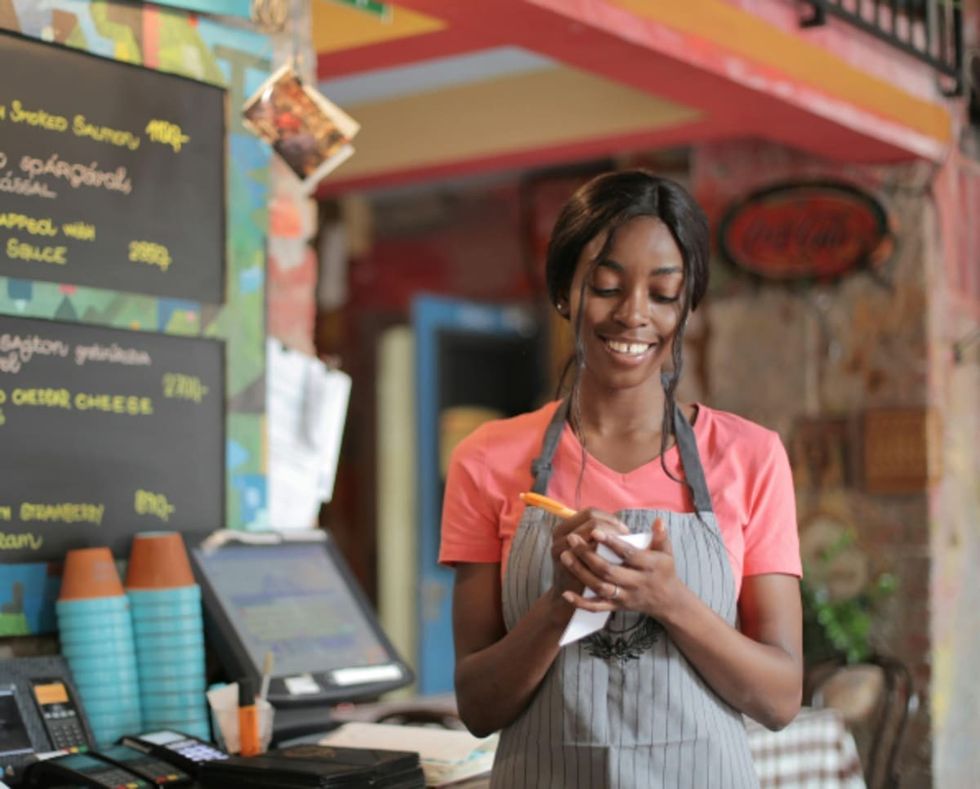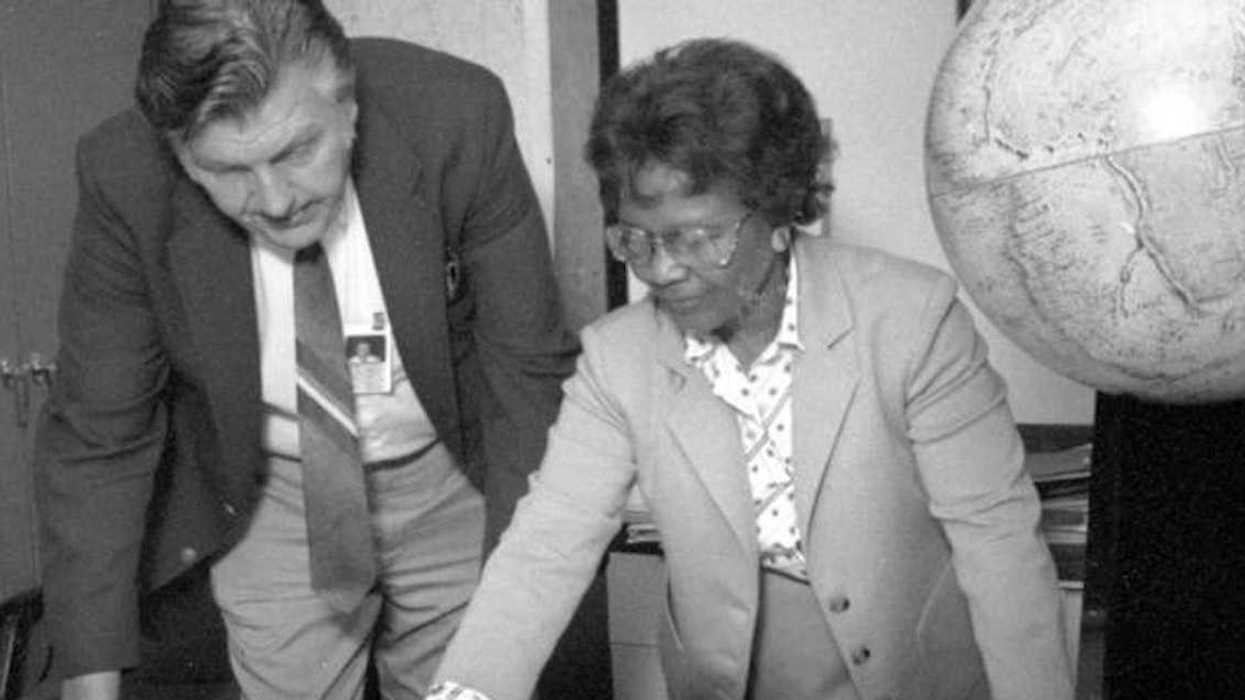Waitressing is a job that requires a certain passion for managing orders and connecting with customers. In the late summer of 2021, when the world was under the grip of the deadly pandemic, a waitress named Megan King at a Perkins restaurant turned into a prime example of kindness. The waitress’ kind gesture is making ripples throughout social media where scores of people are teary-eyed reading a note she shared.

In July, while Megan was serving her 17-hour shift, an elderly customer, a widow, walked into the restaurant to dine alone. It was Megan’s job to tend to her table. While serving her meals, Megan also took the time to interact and chat with the old woman, seeing that she was by herself. "We chatted for a few minutes. Small talk, nothing too deep,” Megan told Tyla.
Megan said the woman told her it’s been a while since she went out to eat alone. Perkins was an old favorite of hers. Once she finished her meal, she left just as quietly as she came. Shortly afterward, when Megan went there to clear the table, she was left speechless and crushed with emotion.

The aged customer had left a note for her along with the tip. The note, handwritten by the lady, delivered an emotional message. "Thank you very much for your kind service,” the note read. "This was my first time eating out alone since my husband passed. I was hoping I could get through it." Megan couldn’t stop herself from crying after reading the note. "As soon as I read that she'd lost her husband I lost it. I had to use the restroom to get myself together enough to tend to my other tables even though I didn't have time to rest," the waitress said.
Later, she posted the snapshot of the note, with a selfie on X, captioning the post as, "In pain." The post became widespread on social media and has 737,000 likes and nearly a thousand comments. Like Megan, the people on X were touched by the note.
@skywalkermcfly_ commented, “Amazing how impactful we can be in someone’s life by not knowing it unless we’re told. Being kind costs nothing. So give it away as much as you can because you’ll never know who you’re uplifting and what you’re uplifting them through.” @damomoo appreciated Megan's kind gesture, “Always better to just be a good person to other people because you just don't know what they're going through. You were an angel to that woman.”
One person even suggested that the post should be shared and the widow customer should be tracked down.
A month after this incident, in August 2021, Megan received another note from another widow who said that she too felt safe at the restaurant, eating alone. Like a halo of the butterfly effect spreading its light, Megan’s single gesture serves as a reminder for tons of people that kindness goes a long way.



















 What foods would you pick without diet culture telling you what to do?
What foods would you pick without diet culture telling you what to do?  Flexibility can help you adapt to – and enjoy – different food situations.
Flexibility can help you adapt to – and enjoy – different food situations.
 Revenge can feel easier than forgiveness, which often brings sadness or anxiety.
Revenge can feel easier than forgiveness, which often brings sadness or anxiety. 
 In the past two years, two malaria vaccines have become available for babies starting at 5 months of age.
In the past two years, two malaria vaccines have become available for babies starting at 5 months of age. By exploiting vulnerabilities in the malaria parasite’s defense system, researchers hope to develop a treatment that blocks the parasite from entering cells.
By exploiting vulnerabilities in the malaria parasite’s defense system, researchers hope to develop a treatment that blocks the parasite from entering cells. Created with
Created with 

 Volunteers who drive homeless people to shelters talk with a person from Ukraine in Berlin on Jan. 7, 2026.
Volunteers who drive homeless people to shelters talk with a person from Ukraine in Berlin on Jan. 7, 2026.
 Tasks that stretch your brain just beyond its comfort zone, such as knitting and crocheting, can improve cognitive abilities over your lifespan – and doing them in a group setting brings an additional bonus for overall health.
Tasks that stretch your brain just beyond its comfort zone, such as knitting and crocheting, can improve cognitive abilities over your lifespan – and doing them in a group setting brings an additional bonus for overall health. Overdoing any task, whether it be weight training or sitting at the computer for too long, can overtax the muscles as well as the brain.
Overdoing any task, whether it be weight training or sitting at the computer for too long, can overtax the muscles as well as the brain.